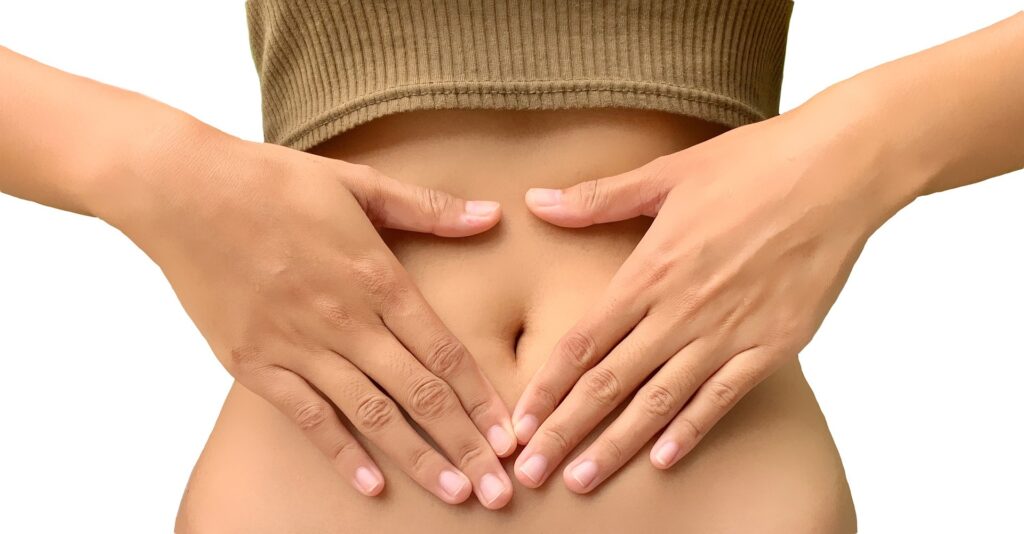What is worse than stress eating? Hogging! So, does eating slowly help you lose weight? Yes, it does, but the benefits go beyond weight loss.
When going all in while making lifestyle changes, we cannot only focus on the right food. We also must focus on eating food in the right way and at the right time.
Feeling overwhelmed?
We hear you.
Making lifestyle changes is a process, and as you keep adding the dots, you discipline yourself on the way.
Eating slowly benefits
Here are reasons why eating slowly helps you lose weight gradually:
Activate fullness hormones
The ghrelin hormone controls our appetite. Every time we complete a meal, this hormone makes us feel full. It sends signals that suggest we have eaten enough and it is time to stop. It takes at least 20 minutes to confirm satiety.
According to a study, 30 healthy women were tested to compare eating rates. The group that ate slowly had lower ad libitum energy intake and higher satiety levels.
Less food less calories
A study involved 35 women with normal weight and 35 overweight/obese women. They were tested for two days and consumed the same meal at different speeds. The reports assessed fullness and hunger. While both groups had lower levels of meal energy density, women with normal weight saw a further reduced meal energy intake compared to the other group.
So, both groups felt fuller for a longer time. They did not feel hungry after 60 minutes which they should have when consuming quicker.

Makes chewing a mandate
Chewing food multiple times is a clear way to slow eating. But did you know energy intake and chewing are correlated? While there is not much information that can link slow chewing with reduced body weight, there are studies that prove this could be true.
A study was conducted among 64 dentate individuals. They consumed test food across five portions. Their chewing cycle, duration, and swallowing were considered. Their age, weight, and gender were other determining factors. The results suggested that chewing behavior does determine body weight status.
Since chewing more times slows down eating, it also makes us feel satiated with smaller quantities. This, in turn, can support weight loss when consuming nutritious food with limited calories.
Aid digestion
Digestion does not begin when the food moves to our stomach. It is a chain reaction that begins when we smell food or think about it. From salivating to putting the food in our mouth, to chewing and finally letting it go down our food pipe, our brain actively assists the process of eating in this way.
Saliva has enzymes and moisture that help break food and makes it easy to swallow. As food reaches the stomach, it starts secreting acid while the small intestine prepares for peristalsis.
Now when we eat fast, our glycemic index deals with digesting quicker. You might not feel it, but you force down food when your body is not ready to endure.
https://www.instagram.com/p/Cq-KDyGg08i/
How to eat slowly and mindfully?
Now that you know the slow eating benefits let us find out how you can put it into practice:
Take 30 minutes out for big meals
We have three main meals every day – breakfast, lunch, and dinner,
Lunch time can be hectic if it coincides with the work schedule, but mindfully taking the time to eat is imperative.
According to a study, the hormones from our gut take time to send signals to the brain to confirm satiation. When you eat fast, your brain also gets a delayed signal.
- Mindfully chewing each bite or keeping your fork every time you take a bite can help.
- Dinner dates are perfect examples of following a slow eating technique. You engage in conversation after each helping, allowing you to eat slowly.
- On the contrary, talking too much while eating must be restricted. It can promote mindless munching and choking.
Take small bites
If the quantity of food you put into your mouth is excessive, your teeth will immediately try to break it down. The chewing activity will become restrictive and difficult.
- When taking small bites, you reduce the quantity and allow the mouthful to have enough space for chewing.
- It forces you to slow down the process, and you can count the number of times you chewed to improve digestion.
Enjoy your food
If you have enrolled in our 28-day weight loss plan, this new change will make you adapt to several habits. As you take small steps to make a huge difference in your diet and lifestyle, you should pause and enjoy the process.
While we work for sustenance, our schedules often make us compromise on the little joys. Eating a meal should be joyful as we offer our body the nutrients required to keep going.
It does not matter if the meal is part of a diet or an occasional dessert indulgence. When you don’t give enough time to make every bite enjoyable, it doesn’t serve the purpose.

Stop when satiated
Combining calorie restriction with slow eating makes you feel fuller with smaller portions of food. One of the reasons why eating slowly helps you lose weight is because it provokes intuitive eating.
You are more aware of your body, listen to what it says, and stop when you are full. This helps maintain weight and keeps the link between your gut and brain seamless.’
Be mindful
‘Families that eat together stay together’ – for sure, but following healthy eating habits while restricting distractions is a plus.
Sitting together at a table and having food without distractions like television serves the purpose.
Leveraging bonding time over meals while keeping the primary focus on food is key to a happy and healthy life.
Do not starve before meals
Have you ever been hungry for a prolonged period only to find yourself hogging on food?
As eating slowly benefits include staying satiated longer, it also ensures you do not crave food before your next meal. It helps you maintain the right time to eat everyday and prevents you from giving in to your hunger pangs.
Fight the fast life
When you consciously eat slowly, you rebel against the fast life that has completely consumed us. Fast life often dehumanizes us, depriving us of fulfilling basic needs like sleeping and eating. When we do not consider such activities normal, we take utmost care to prevent the repercussions they can bring us.

Frequently Asked Questions (FAQs)
1. Why does eating fast make you fat?
Eating fast leads to overeating because we are not fully satiated. If you do not follow portion control, you are more likely to eat more than your body requires during a meal.
If you follow portion control, eating fast can prevent your stomach from feeling full. It will force you to snack more often, break eating pattern, and add more calories to your body. On the contrary, if you keep yourself hungry, it can make way for gastric issues.
2. How does chewing 32 times help weight loss in one month?
While sharing his weight loss journey on Ted Talk, YouTuber Sandeep Maheshwari shared how chewing 32 times helped him lose weight. While one month is not a specific timeline to determine visible results, it is a lifestyle change toward improvement. Following a rule of counting and chewing helps digestion, curbs hunger pangs, and prevents overeating.
3. Does eating slowly help digestion?
Breaking down a mouth full of food eases digestion as it is light on the stomach.
4. How slow should you eat to lose weight?
You should ideally eat a meal for 20 to 30 minutes to let your stomach get the signal of fullness that prevents overeating. The process, in turn, helps you keep your calorie in check.
References:
KJ;, A.A.G. (no date) Eating slowly led to decreases in energy intake within meals in healthy women, Journal of the American Dietetic Association. (Accessed: 23 May 2023) Available at: https://pubmed.ncbi.nlm.nih.gov/18589027/.
Shah M;Copeland J;Dart L;Adams-Huet B;James A;Rhea D; (no date) Slower eating speed lowers energy intake in normal-weight but not overweight/obese subjects, Journal of the Academy of Nutrition and Dietetics. (Accessed: 23 May 2023) Available at: https://pubmed.ncbi.nlm.nih.gov/24388483/.
JH;, Z.Y. (no date) Relationship between chewing behavior and body weight status in fully dentate healthy adults, International journal of food sciences and nutrition. (Accessed: 23 May 2023) Available at: https://pubmed.ncbi.nlm.nih.gov/25582174/.
Kokkinos A;le Roux CW;Alexiadou K;Tentolouris N;Vincent RP;Kyriaki D;Perrea D;Ghatei MA;Bloom SR;Katsilambros N; (no date) Eating slowly increases the postprandial response of the anorexigenic gut hormones, peptide YY and glucagon-like peptide-1, The Journal of clinical endocrinology and metabolism. (Accessed: 23 May 2023) Available at: https://pubmed.ncbi.nlm.nih.gov/19875483/.


Good https://is.gd/tpjNyL